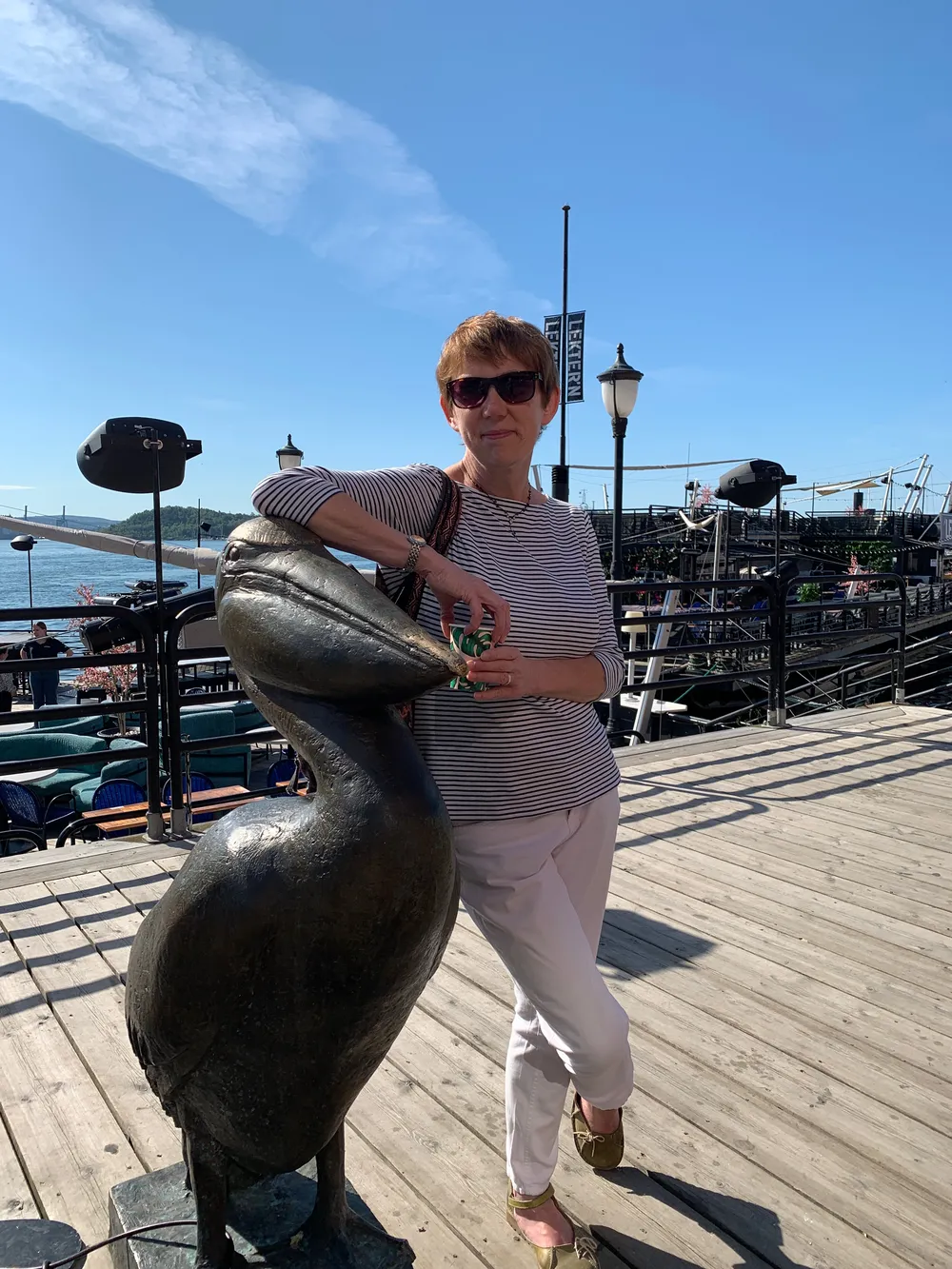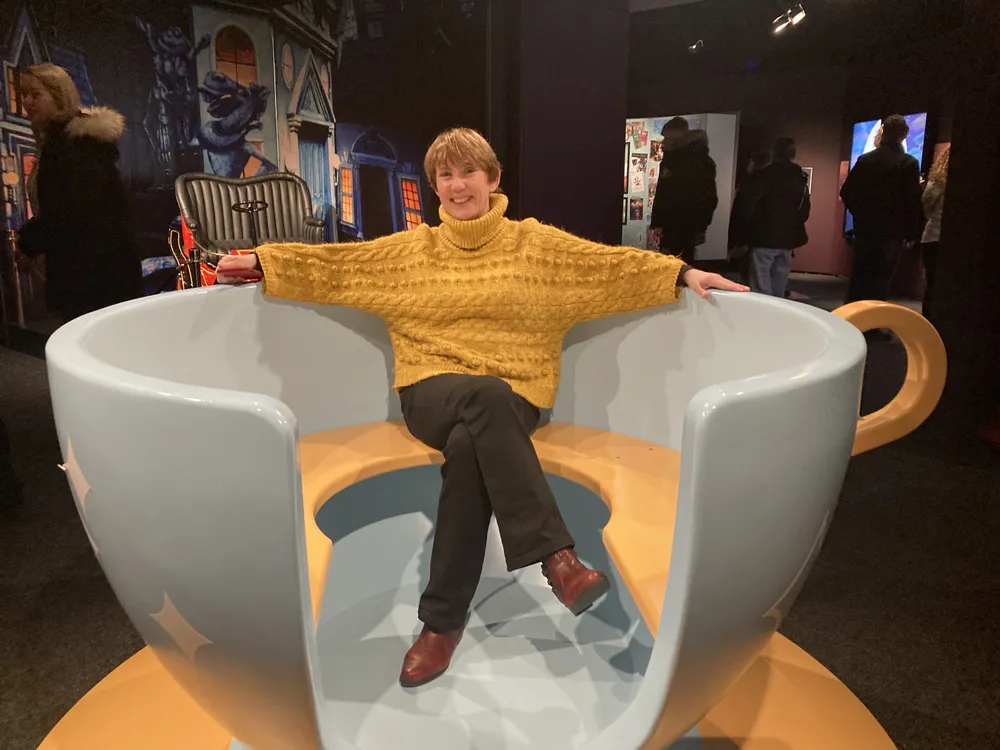Tracey Francis: Supporting neurodivergent young people
Tracey Francis: Supporting neurodivergent young people
Tracey Francis: Supporting neurodivergent young people
Author
It was family circumstances that led Tracey Francis to embark on her Churchill Fellowship. Her teenage daughter had been diagnosed with autism, and Tracey wanted to explore what support was available.
“My interest was particularly around young people who are potentially very high achievers, but their interpersonal skills and anxiety are barriers to achieving.
“These barriers are not just around employment, but also around building a whole life, having friends, managing healthcare, living independently, and being able to manage that transition to adulthood.”
European Churchill Fellowship travels
For her 2015 Fellowship, Tracey visited Norway, Italy, and the Czech Republic. In Norway, she spent time at the Norwegian Centre of Expertise for Neurodevelopmental Disorders and Hypersomnias.
“This was the first time I had come across a centre looking at the links between different neurodivergent conditions. In Norway, it was more usual, if you had one condition, to go on to be screened for other conditions too, giving a much fuller picture, and resulting in more meaningful support. This wasn’t happening in the UK.
“I wasn’t only interested in autism but ADHD in young adults – which was really only just beginning to be spoken about in the UK – and Tourette’s syndrome too. Diagnosis is usually only the start – you then need to work out useful strategies and support, and they will be different for everyone.
“My angle is not the neuroscience, interesting as that is, but the impact on the individual, and how we can make a difference. In the future we may know more about the science, but right now there are things we can and should be doing for people living with a combination of conditions.”
“I had the voice before, and I had things to say but it is the Fellowship that has given me the platform. It is the gift that keeps on giving.”
Putting learning into practice
Since her Churchill Fellowship, Tracey has championed support for neurodivergent young people transitioning to adulthood.
She has spoken at national and international events, including reporting on her Fellowship at the Autism Europe conference, and continues to provide training and workshops to families and professionals. She recently spoke about barriers to employment for young people to the Scottish Government’s Economy and Fair Work Committee in the Scottish Parliament.
"It’s about raising awareness with the policymakers and the professionals about the impact of neurodivergence on the wider life of a young person."
Work in Scotland to support transitions
Tracey worked for the charity Contact and with parents across Scotland, to set up a website giving families essential information and support around transitions.
Tracey now works with ARC Scotland to co-facilitate the Scottish Transitions Forum. She was a member of the Scottish Government’s strategic development group for its first National Transitions to Adulthood Strategy for Young Disabled People, and supported parents to play an active part in discussions directly with Members of Scottish Parliament and civil servants.
Finally, she was closely involved in developing Compass, a new digital tool to empower and inform everyone involved in transitions – young people, parents and carers, and professionals. She is currently leading on its rollout across Scotland.
Tracey firmly believes her achievements are thanks to the Churchill Fellowship.
“I had the voice before, and I had things to say but it is the Fellowship that has given me the platform. It is the gift that keeps on giving.”
“My interest was particularly around young people who are potentially very high achievers, but their interpersonal skills and anxiety are barriers to achieving.
“These barriers are not just around employment, but also around building a whole life, having friends, managing healthcare, living independently, and being able to manage that transition to adulthood.”
European Churchill Fellowship travels
For her 2015 Fellowship, Tracey visited Norway, Italy, and the Czech Republic. In Norway, she spent time at the Norwegian Centre of Expertise for Neurodevelopmental Disorders and Hypersomnias.
“This was the first time I had come across a centre looking at the links between different neurodivergent conditions. In Norway, it was more usual, if you had one condition, to go on to be screened for other conditions too, giving a much fuller picture, and resulting in more meaningful support. This wasn’t happening in the UK.
“I wasn’t only interested in autism but ADHD in young adults – which was really only just beginning to be spoken about in the UK – and Tourette’s syndrome too. Diagnosis is usually only the start – you then need to work out useful strategies and support, and they will be different for everyone.
“My angle is not the neuroscience, interesting as that is, but the impact on the individual, and how we can make a difference. In the future we may know more about the science, but right now there are things we can and should be doing for people living with a combination of conditions.”
“I had the voice before, and I had things to say but it is the Fellowship that has given me the platform. It is the gift that keeps on giving.”
Putting learning into practice
Since her Churchill Fellowship, Tracey has championed support for neurodivergent young people transitioning to adulthood.
She has spoken at national and international events, including reporting on her Fellowship at the Autism Europe conference, and continues to provide training and workshops to families and professionals. She recently spoke about barriers to employment for young people to the Scottish Government’s Economy and Fair Work Committee in the Scottish Parliament.
"It’s about raising awareness with the policymakers and the professionals about the impact of neurodivergence on the wider life of a young person."
Work in Scotland to support transitions
Tracey worked for the charity Contact and with parents across Scotland, to set up a website giving families essential information and support around transitions.
Tracey now works with ARC Scotland to co-facilitate the Scottish Transitions Forum. She was a member of the Scottish Government’s strategic development group for its first National Transitions to Adulthood Strategy for Young Disabled People, and supported parents to play an active part in discussions directly with Members of Scottish Parliament and civil servants.
Finally, she was closely involved in developing Compass, a new digital tool to empower and inform everyone involved in transitions – young people, parents and carers, and professionals. She is currently leading on its rollout across Scotland.
Tracey firmly believes her achievements are thanks to the Churchill Fellowship.
“I had the voice before, and I had things to say but it is the Fellowship that has given me the platform. It is the gift that keeps on giving.”



